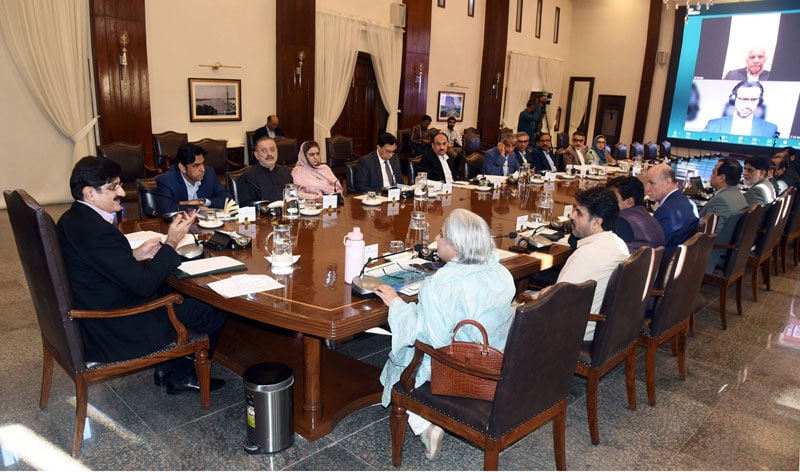Sindh Chief Minister Syed Murad Ali Shah emphasized the urgent need for population control measures as Pakistan’s 2023 digital census reveals a 2.55% annual growth rate, pushing the national population to 241 million, with Sindh surpassing 55 million. This population surge, driven by high birth rates and migration, has stretched Sindh’s resources, impacting jobs, healthcare, education, housing, and food supply.
In a Taskforce on Population Growth meeting at CM House, attended by provincial ministers, officials, and international representatives from UNFPA, USAID, and the Bill & Melinda Gates Foundation, CM Shah outlined the taskforce’s goals. He called for policies to address the mounting pressures on resources and highlighted the progress Sindh has already made in family planning, including legislative measures like the Child Marriage Restraint Act (2013), Reproductive Health Rights Bill, and the Population Policy of Sindh (2016).
During the meeting, the taskforce celebrated progress in creating a unified platform for stakeholders, notably the FP2030 Working Group, which is focused on scaling up family planning efforts. Key achievements include community midwife engagement, marital counseling initiatives, and enhanced roles for Lady Health Workers in administering initial family planning doses. Programs like the Sayana Press initiative and life skills education for youth have extended the reach of family planning, with partnerships forged with NGOs and professional bodies for effective contraceptive distribution. Sindh’s Costed Implementation Plan (CIP) for family planning was recognized globally as one of the best practices, alongside Tanzania and Ghana.
However, challenges remain, especially in integrating services at the facility level and in fostering behavior change for improved service uptake. The taskforce has mapped a comprehensive plan for reforms by 2030, with a focus on. Expanding integrated health and population services through public-private partnerships (PPPs) for universal access. Enhancing quality of service delivery, emphasizing skilled human resources and reliable equipment to ensure satisfaction. Increasing life skills education for youth and adolescents while engaging men and community leaders in promoting gender-positive norms.
Strengthening legislative, advocacy, and social initiatives to drive behavioral change. Implementing robust oversight, including supervision, evaluation, and cross-sectoral collaboration, to secure sustainable impact. CM Shah highlighted the need to integrate health and population sectors at district and facility levels, in partnership with PPHI and RMNCH, to address Council of Common Interests (CCI) recommendations and Sustainable Development Goals (SDGs). The roadmap also includes hiring 350 Family Welfare Workers, acquiring monitoring vehicles, improving private healthcare accreditation, and enforcing family planning standards through the Sindh Healthcare Commission.
The taskforce reaffirmed its commitment to family planning and population welfare, with CM Shah urging coordinated efforts across sectors to address the challenges of rapid population growth and secure a sustainable future for Sindh.









